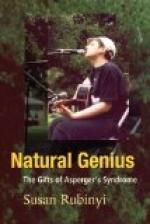Vaughan’s birds and flowers gleam with light from the spirit land. This is the opening of a little piece entitled “The Bird:”
“Hither thou com’st.
The busy wind all night
Blew through thy lodging, where thy own warm wing
Thy pillow was. Many a sullen storm,
For which coarse man seems much the fitter born,
Rain’d on thy bed
And harmless head;
And now, as fresh and cheerful as the light,
Thy little heart in early hymns doth sing
Unto that Providence, whose unseen arm
Curb’d them, and cloth’d thee well
and warm.”
How softly the image of the little bird again tempers the thought of death in his ode to the memory of the departed:
“He that hath found some
fledged bird’s nest may know
At first sight if the bird be flown;
But what fair dell or grove he sings in now,
That is to him unknown.”
But we must leave this fair garden of the poet’s fancies. The reader will find there many a flower yet untouched.
* * * * *
Richard Crashaw was the contemporary of the early years of Vaughan; for, alas! he died young—though not till he had transcribed for the world the hopes, the aspirations, the sorrows of his troubled life. He lived but thirty-four years—the volume of his verses is not less nor more than the kindred books of the brother poets with whom we are now associating his memory. A small body of verse will hold much life; for the poet gives us a concentrated essence, an elixir, a skillful confection of humanity, which, diluted with the commonplaces of every-day thought and living, may cover whole shelves of libraries. The secret of the whole of one life may be expressed in a song or a sonnet. The little books of the world are not the least.
Crashaw, also, was a scholar. The son of a clergy-man, he was educated at the famed Charter-house and afterward at Cambridge. The Revolution, too, overtook him. He refused the oath of the covenant, was ejected from his fellowship, became a Roman Catholic, and took refuge in Paris, where he ate the bread of exile with Cowley and others, cheered by the noble sympathy—it could not be much more—of Queen Henrietta Maria. She recommended him to Rome, and the sensitive poet carried his joys and sorrows to the bosom of the church. He lived a few years, and died canon of Loretto, at the age of thirty-four.
Though the son of a zealous opponent of the Roman church, Crashaw was born with an instinct and heart for its service. There runs through all his poetry that sensuousness of feeling which seeks the repose and luxury of faith which Rome always offers to her ardent votaries. It is profitable to compare the sentiment of Crashaw with the more intellectual development of Herbert. What in the former is the paramount, constant exhibition, in the latter is accepted, and holds its place subordinate to other claims. Without a portion of it there could be




